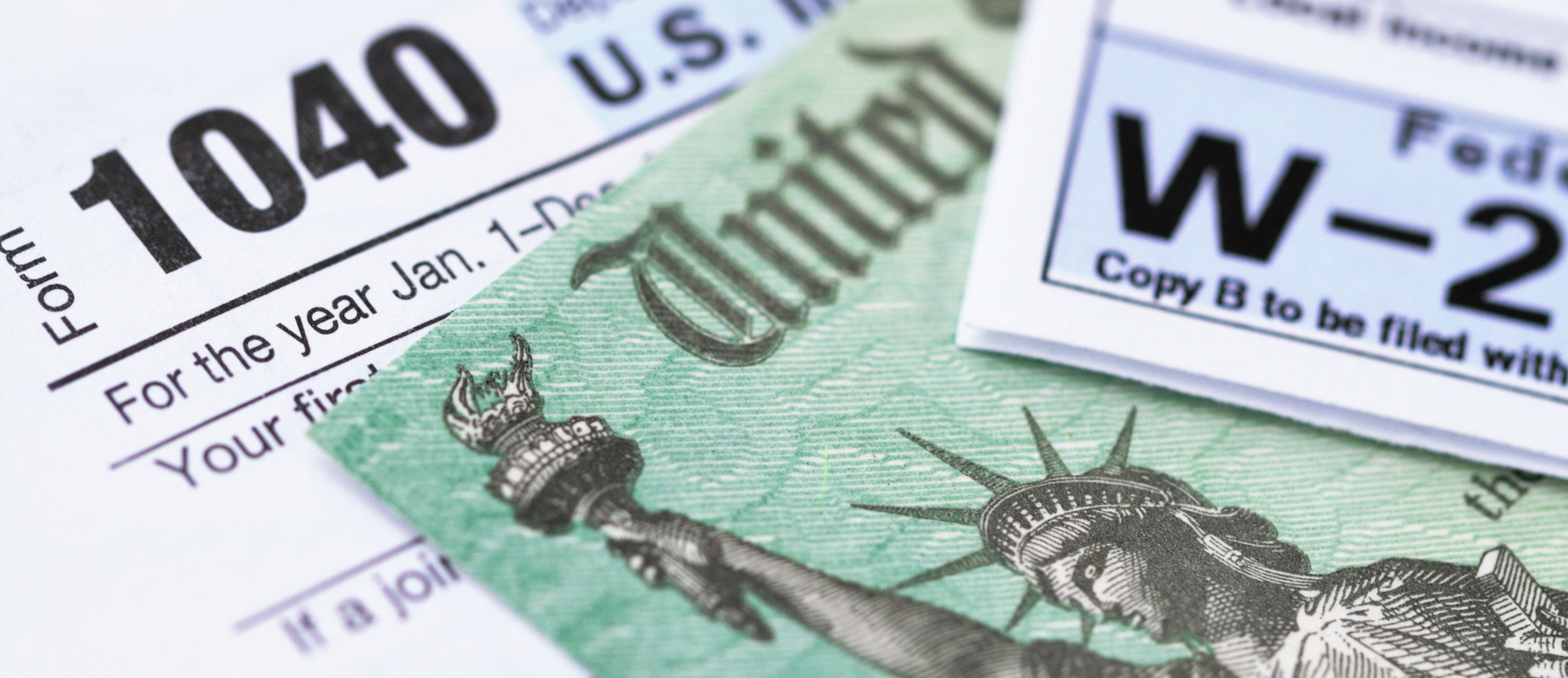
What Are the Tax Implications for Selling a California Home?
When you sell a home in California, taxes might affect the amount of money you make. It’s important to understand these taxes so that you can plan accordingly. California house-selling taxes combine federal and state taxes. You should be aware of the property tax implications in California.
Real estate taxes might make it challenging to sell a home. However, if you understand the fundamentals, it becomes easy. Knowing what taxes to expect can help you avoid unexpected expenses and save more money from your sales.
How Does the Capital Gains Tax Work in California?

If you sell your house in California, you may be required to pay capital gains taxes. This tax applies to the profit you make when you sell your home. To calculate your taxable gain, deduct the amount you paid when you bought the residence from the amount you sold it for, plus any renovations you made.
California’s capital gains tax rate is determined by how long you have owned your house and your income level. You may not have to pay as much if you’ve lived in your home for two of the last five years. It is a good idea to look up the current California tax rates or seek assistance from a tax specialist.
What Role Do Property Taxes Play in Selling a Home?
Property taxes are a significant consideration when selling a home in California. As a homeowner, you are required to pay California property taxes annually. These taxes help fund municipal services such as schools and roads.
When selling a home in California, you need to consider real estate taxes. In rare situations, you may be able to avoid a tax increase through a property tax reassessment exclusion.
Additionally, understanding how California local taxes affect your sales is beneficial. This knowledge can help you sell your house more smoothly and ensure all taxes are paid correctly. A financial counselor or tax professional can provide more thorough advice.
Are There Federal Taxes to Consider When Selling a House in California?

When selling a residence in California, you need to be aware of federal taxes. The federal capital gains tax on real estate contributes significantly to this issue. This tax applies to the profit you make from selling your home. However, you can lower this charge. If your home has been your primary residence for at least two of the last five years, the IRS allows you to deduct some gain from taxes. Single people can receive up to $250,000. Married couples can file for up to $500,000. Remember that this exception may not apply if the home is not your primary residence or if certain conditions are not met.
How Do Federal Capital Gains Taxes Affect My Sale?
California’s capital gains tax on property transactions might affect the amount of tax paid. To calculate the taxable gain, deduct the purchase price and any significant modifications from the sale price. Here are some tips:
- Primary Residence Tax Exclusion: If you lived in the home for at least two years in the last five, you might not have to pay tax on part of the sale.
- Taxable Gain Calculation Real Estate: If you can’t use the exclusion, or if your profit exceeds the limit, you’ll need to figure out how much gain is taxable. It’s smart to ask a tax expert for help.
What Are the IRS Reporting Requirements When Selling a Property?
Understanding the IRS home sale reporting requirements is crucial when selling a house. Here’s a simple guide:
- You usually must tell the IRS about selling your home using a special form. Often, this is Form 1099-S, which shows the total money from the sale.
- Even if you qualify for the exclusion, fill out the necessary parts of your tax return to show the sale counts for the exclusion.
- Any taxable amount from the home sale must be reported to avoid trouble with the IRS later.
Understanding these home sale reporting requirements helps you follow the rules and avoid extra taxes or fines. Knowing what to do makes selling your home smoother and easier.
What Can Affect My Tax Liability When Selling My Home?

When you sell your property, your tax liability may change due to various variables. California’s home sales taxes are determined by the amount sold and the time the property has been owned. Capital gains refer to the money you make when you sell your home. This affects the real estate tax you may be required to pay.
- Sale Price: The more money you make from selling your home, the more taxes you might pay.
- Ownership Duration: If you’ve owned and lived in your home for a long time, you might get some tax breaks that can lower your taxes.
Knowing these things can help you manage your taxes when selling your home.
How Do Home Improvements Impact My Taxes?
Home changes can affect the way your taxes work. Here’s how:
- Adjusted Basis: Improving your home increases its adjusted basis, like the total investment you’ve made. A higher adjusted basis can lower the taxable gain when you sell.
- Tax Deductions: While you can’t usually deduct home improvements, they can make your property worth more and help reduce future taxes.
Planning your improvements wisely can make your home more valuable and allow you to enjoy some tax benefits.
Are There Exemptions Available for Primary Residences?
You may be eligible for capital gains tax exemptions if you sell your principal residence. In California, there are tax laws that help homeowners:
- Capital Gains Tax Exclusion: If you lived in your home for at least two out of the last five years before selling, you might not have to pay taxes on up to $250,000 of your gain if you’re single or $500,000 if you’re married filing jointly.
- Homeowner Exemptions: These exemptions can also reduce the taxes you owe when you sell your home.
These exemptions can help you save money when you sell your primary residence.
How Can I Minimize Taxes When Selling My House?
Selling a home in California might result in taxes, but there are ways to reduce your tax burden. Understanding how these taxes work can help you save money. Here are some ideas and tax deductions to consider when selling a home.
What Strategies Can Help Reduce My Tax Bill?

- Capital Gains Tax California: When you sell your main home, you might have to pay capital gains tax. But the IRS lets you exclude some of this. If you are single, you can exclude up to $250,000; if you are married, up to $500,000 of profit from the capital gains tax.
- Home Sale Tax Exemptions: To get the primary residence exclusion, you must have lived in your home for at least two years out of the last five years before selling it. Following this rule can lower your taxable income.
- 1031 Exchange California: A 1031 exchange helps you defer paying capital gains taxes for investment properties. Using the money from one property to buy another, you can keep building your real estate investments without paying taxes immediately.
- Tax Credit for Home Improvements: If you make certain improvements to your home, it can increase its value and reduce capital gains. Keep records of improvements because they might qualify for tax credits or deductions.
Can a 1031 Exchange Benefit Me Financially?
A 1031 exchange allows you to delay capital gains taxes by purchasing a similar property. Here’s how it can help:
- Tax Deferral Options Real Estate: A 1031 exchange allows you to invest those gains into a new property instead of paying taxes on the sale profits. This can help manage your real estate investments over time.
- Real Estate Withholding Tax California: There might be a withholding tax when selling property. Talking to a tax expert will ensure you follow the Franchise Tax Board rules while keeping your taxes low.
- Adjusted Basis of Home Sale: To figure out your taxes, you need to know your property’s adjusted basis. This is the original price plus any improvements minus any depreciation. Knowing this helps you determine your real gain and possible taxes owed.
Selling a home entails various tax rules, particularly in California. Understanding these tactics and utilizing choices such as the 1031 exchange can help you manage and reduce your tax duties.
What Are Common Misconceptions About Home Sale Taxes?

Selling a home, particularly in California, can be tax-complex. A prevalent misperception is that everyone must pay taxes on their home-sale profits. If your house was your primary residence for at least two of the last five years, you may be eligible for a primary residence tax exclusion. This allows you to exclude up to $250,000 in gain from your taxable income or $500,000 if you are married and filing jointly. The capital gains tax exemption standards may appear difficult to meet, yet they are often simpler than thought.
Is Paying Taxes on Home Sale Profits Always Necessary?
You might wonder: “Do I always have to pay taxes when selling my house in California?” Not always. The exclusion of gain from selling a home allows homeowners to avoid paying taxes on sale proceeds if certain conditions are met. If the home was your primary residence and you owned it for two of the last five years, you may not owe taxes. If certain conditions are not met, earnings from home sales may be considered taxable income. Knowing your situation might help you determine whether you need to pay taxes.
How Do Transfer Taxes Fit Into the Home-Selling Process?
California imposes transfer taxes when selling property. Selling a home in California may result in a transfer tax. This is a levy that the state or local government imposes whenever property changes hands. The fee varies according to your city or county. California imposes a real estate withholding tax to ensure sellers pay appropriate taxes on their gains. Understanding the tax ramifications of selling a house is crucial since they impact your profits. Knowing these taxes can help avoid surprises at closing, whether for an estate transaction or another type of sale.
When selling property in California, contact a tax professional. They can assist you in being prepared and following all the requirements while receiving the maximum advantages permitted by law.
FAQs:
What Taxes Are Involved When Selling A House In California?
When you sell a house in California, you might have to pay federal and state capital gains taxes and local transfer taxes. Knowing these can help you manage your costs.
How Are Capital Gains Taxes Calculated On A Home Sale In California?
Capital gains taxes are based on the difference between the sale price of your home and its original cost or adjusted basis. You might get specific exclusions if the home was your primary residence.
Are There Deductions Available When Selling A House In California?
Yes, you might be able to deduct mortgage interest and property tax. These deductions can help lower the taxable income from your sale.
What Is The California Real Estate Withholding Tax?
In California, a portion of the sale price is withheld for taxes unless an exemption applies, such as when selling a primary residence.
What Are The Tax Implications Of Selling An Inherited Property In California?
Selling inherited property may lead to capital gains taxes based on the home’s value when you inherited it. It’s a good idea to talk to a tax expert.
How Does The 1031 Exchange Work In California?
A 1031 exchange lets you postpone capital gains taxes by using the money from a property sale to buy another similar property. This is often helpful for investors.
What Are Propositions 60 And 90 In California Real Estate?
These propositions allow homeowners aged 55 and older to transfer their property tax base to a new home of equal or lesser value within certain California counties.
How Does Selling A Second Home In California Affect Taxes?
Selling a second home usually means paying capital gains taxes without the primary home exclusion. The taxable gain depends on the adjusted basis, sale price, and related expenses.
Key Insights
- When selling a house in California, know the California house sale taxes and rules that may affect your sale.
- Learn about the California tax laws for selling a house, including how local taxes might change your home sale.
- Be clear on what taxes you must pay when selling property in California, such as the real estate withholding tax and possible capital gains tax.
- Consider the tax effects of selling inherited property and see if you can use exemptions like the primary residence tax exclusion.
- If you sell your home in California, you must report it on your tax return, following the IRS home sale reporting requirements.
- Check to see if a 1031 exchange, which lets you defer some taxes when selling real estate, could help.
- Determining the adjusted basis of your home sale and exclusions can change your taxable gain, which might lower your taxes.
- Watch out for the California capital gains tax rate and look for any homeowner exemptions or deductions you can use.
- Remember the tax issues when selling rental property, such as the depreciation recapture tax and other federal capital gains tax impacts.
Read on to discover everything you need to know about selling a house in California. Whether you’re in Los Angeles, San Diego, Long Beach, Riverside, San Bernardino, or surrounding areas, these insights apply to homeowners across the state. If you’re looking for a hassle-free sale, we buy houses, offering a quick and convenient solution. For more information or personalized assistance, feel free to Contact Us at (855) 915-1382.
What Do You Have To Lose? Get Started Now…
We buy houses in ANY CONDITION in CA. There are no commissions or fees and no obligation whatsoever. Start below by giving us a bit of information about your property or call (855) 915-1382…


